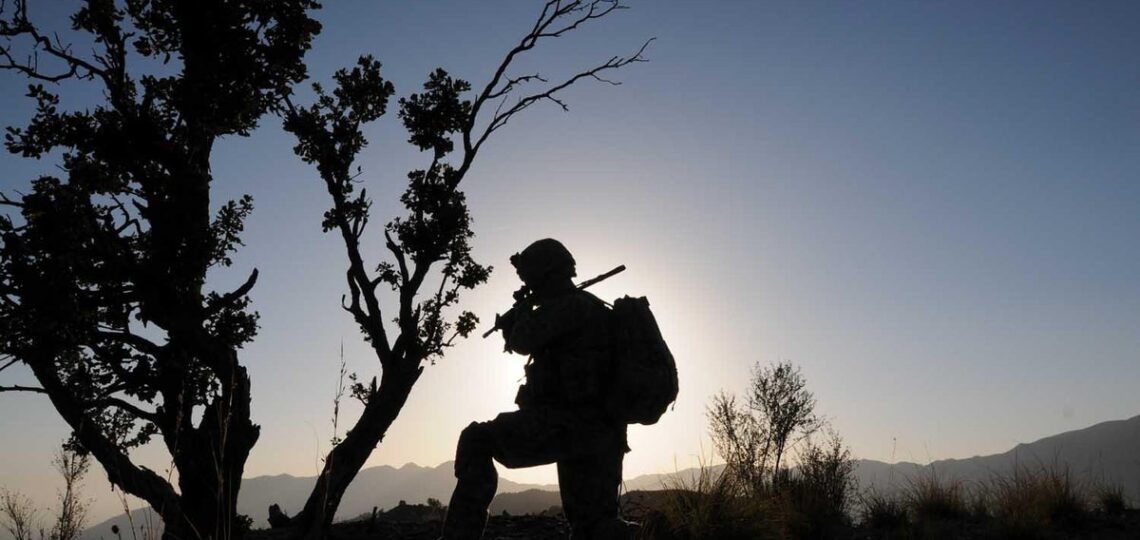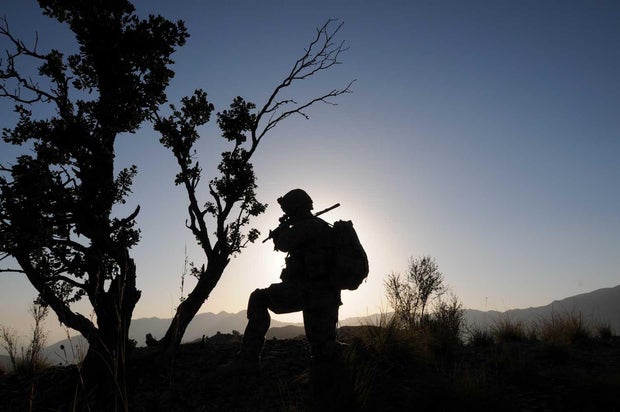
Army circulates guidelines for expelling transgender troops from military
Washington — Transgender military service members must come forward and voluntarily leave active-duty service next week, by June 6, according to Defense Department guidance issued by Secretary Pete Hegseth. After that, the military is expected to begin involuntary separations for active-duty trans service members who remain.
One of the service branches, the Army, on Wednesday issued more guidance about how it will identify and interact with soldiers with gender dysphoria, according to documents obtained by CBS News.
Although Hegseth had made formal assurances in a February memo that transgender service members would be treated with dignity, the Army’s new internal directives to units instruct personnel to intentionally address transgender troops — even superior officers — in accordance with an individual’s medical assignment at birth rather than by their preferred pronoun.
When the military starts forcing out transgender troops through involuntary separations, soldiers will identify fellow service members suspected of having gender dysphoria following a list of criteria outlined in the guidance. The markers include past requests for grooming standard exemptions tied to medical assignment at birth or the initiation of a medical treatment plan tied to gender dysphoria. “Overt conduct,” either on social media or in person, of gender identity differing from assigned sex at birth and even a commander’s “private conversation” where a soldier disclosed gender dysphoria are considered relevant under the guidance.
The commander is expected to initiate a medical record review if aware of any of the criteria above, and service members will also be asked during routine medical check-ups about their identity as a result of the Defense Department’s new policy.
In a February memo filed with the U.S. District Court in Washington, Defense Secretary Pete Hegseth said transgender troops will be “treated with dignity and respect.” But in public, the Army veteran and former Fox News host has instead railed against transgender service members, saying at a Special Operations Forces military conference in Florida in May, “No more dudes in dresses, we’re done with that s***.”
The Army guidance also instructs soldiers to use the “utmost professionalism and treating all individuals with dignity and respect,” but the policies run counter to transgender social norms, like addressing transgender troops by the pronouns they prefer.
Army Maj. Kara Corcoran, a transgender infantry officer and Afghanistan veteran with 17 years of military service, now faces separation from the armed forces. She defended the service of transgender troops when contacted Friday by CBS News.
“By implementing this guidance…you’re making it worse than the ‘Don’t Ask, Don’t Tell’ policy, because you’re overtly hunting down and trying to identify transgender service members or anybody that…exhibits symptoms of gender dysphoria,” Corcoran said.
She added: “Transgender service members have served openly since 2016 without adverse impacts on readiness or unit cohesion. Thousands of transgender troops are combat-tested, having deployed to war zones and executed missions with destruction.”
Karra Corcoran
The Defense Department defines gender dysphoria as a “marked incongruence between an individual’s experienced or expressed gender and their assigned gender, lasting at least six months, as manifested by conditions causing clinically significant distress or impairment in social, occupational, or other important areas of functioning.”
The Army guidance issued to units on Wednesday begins with the suggestion that identifying with a gender different from one’s sex assigned at birth is at odds with the values of truthfulness and discipline expected of service members — even beyond the uniform they wear. The guidance echoes the statements in President Trump’s January executive order stating the values of transgender service members represent a departure from the “humility and selflessness required” of military members and are “inconsistent with” the “cohesion” the armed forces demand.
Contacted by CBS News on Thursday, an Army spokesperson at the Pentagon said that since May 8, additional guidance has been issued as the service continues to voluntarily separate service members.
When asked about soldiers being directed to misgender transgender soldiers, the Army spokesman, who did not want to be identified while speaking on behalf of the service, repeated what was in the guidance obtained by CBS News: “Pronoun usage when referring to Soldiers must reflect their biological sex. In keeping with good order and discipline, salutations (e.g., addressing a senior officer as “sir” or “ma’am”) must also reflect an individual’s biological sex.”
The Army spokesman added, “The Army recognizes the selfless service of all who have volunteered to serve our great nation. We are in the process of ensuring the Army is aligned with recent policy changes to Soldier requirements. Regardless of potential outcomes, every Soldier will be treated with dignity and respect.”
Commanders have also been instructed to revise official records to reflect service members’ sex at birth, rather than their gender identity. In the interim, transgender troops are expected to comply with policies aligned with biological sex—ranging from physical fitness standards to uniform requirements, sleeping quarters and access to restrooms and showers.
Under current policy, decisions to separate soldiers outside standard regulatory grounds rest solely with the secretary of the Army — a power typically reserved for exceptional circumstances. Enlisted transgender soldiers will be separated under the Secretarial Plenary Authority, a mechanism the Army itself acknowledges is “exercised sparingly.” Historically, this little used authority has surfaced during politically fraught chapters of military policy — from discharges over COVID-19 mandate refusals to the now-defunct “Don’t ask, Don’t Tell” era.
While both enlisted and officer transgender troops will receive an honorable discharge unless their service warrants a lower characterization, they will also receive an RE-3 enlistment code, meaning they are not eligible to rejoin the Army or any other U.S. military service without a waiver.
Army military officers will be separated on the basis that “their continued service is not clearly consistent with the interests of national security.” CBS News has not yet seen directives from the other service branches and whether they mirror the Army’s policies.
Under the Army guidance obtained by CBS News, transgender officers will receive what’s known as a “Code JDK” upon separation. The JDK code is for the Military Personnel Security Program, and is typically applied to discharge paperwork where a service member is being separated from the U.S. military for a security reason.
Cody Harnish, a former Army Judge Advocate General officer and now a private defense attorney for U.S. service members, told CBS News by phone on Thursday that a JDK separation code is a red flag and signals to other government agencies that the service members were separated for “national security interests.”
“This can be a serious roadblock to keeping or transferring a security clearance to future employment requiring a clearance,” said Harnish. He said under President Trump’s executive order revoking gender identity discrimination protections, if a transgender veteran’s separation from the military bears this code and is vetted for a job requiring a security clearance, “being transgender can again be viewed as a security concern.”
Harnish said that having the JDK separation code on their record may be interpreted by future employers “as evidence of heightened risk, severely complicating or blocking clearance maintenance or transfer after military service.”
But amid the crackdown and political rhetoric surrounding the service of transgender service members, Maj. Corcoran offered a pointed reflection on patriotism, duty, and shared sacrifice.
“It’s simple, we transgender service members believe in the same American values you do—liberty and freedom,” said Corcoran. “The nation’s strength comes together for a common purpose in the face of the ever-increasing hostile global environment. It is in the blood of the warrior spirit that we all stand ready to fight, and if need be, die in the defense of the cherished institutions of America. Let us embody this by serving.”
